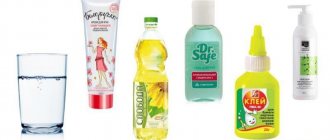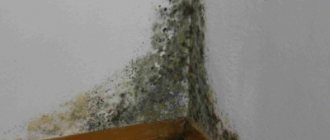How to neutralize the smell of whiteness
When your hands smell like bleach, you can deal with it with simple remedies that are available everywhere. You don't even have to go to the store to get them.
Vinegar
Acetic acid solution is a popular and effective odor neutralizer. But 2 things are important in use:
- vinegar is aggressive to the skin and must be handled with caution;
- After the procedures, you need to lubricate the skin with a softening cream.
It is enough to add 2 tbsp to a container with 1 liter of warm water. l. vinegar and mix well, and then hold your hands in this bath for a few minutes. Then wipe with paper napkins so as not to spoil the towel. The smell should disappear.
For delicate hand skin, table vinegar is sometimes replaced with apple cider vinegar (in the same proportions), but it is less effective, and one procedure is not enough - you have to repeat it several times.
Ammonia
An alternative to table vinegar is ammonia. It is also suitable in the form of baths, and you need to add about the same amount - 1-2 tbsp. l. for 1 liter of water. It is better to boil water, add ammonia, stir, and then let it cool. Alcohol will dissolve faster in hot water.
The value of ammonia is that, although it has a strong odor, it quickly dissipates. At first, alcohol will replace the aroma of bleach on your hands, but after washing your palms with soap, everything will disappear without a trace.
Tomato paste
The acid contained in tomatoes copes well with unwanted odors. It is most convenient to use tomato paste. A little product is rubbed between the palms and on the outside.
Soda
Baking soda is used in 2 ways:
- Mix 2 tbsp. l. soda with 100-150 ml of water and prepare a paste-like liquid. It is rubbed between the palms, then rinsed. When necessary, repeat several times.
- Add 2-3 tbsp. l. in a bowl with 1 liter of warm water and stir until dissolved. If the smell of bleach is not too strong, then a bath with soda can successfully get rid of it.
Getting rid of odor on hands
Chlorine has the ability to penetrate any protection and be absorbed into the skin. To remove odor from your hands, it is recommended to use baths made from natural ingredients:
- Dissolve a few drops of lemon in warm water. Keep your hands in the bath for at least a quarter of an hour.
- Pour a little ammonia into a container of water.
- If you add a couple of tablespoons of vinegar (apple or table vinegar) to a bowl of water, you can quickly get rid of the smell of bleach on your hands.
After taking acid baths, wipe your hands dry. It is necessary to lubricate them with any emollient cream.
Squeeze a little lemon juice into your palm and gently rub it into the skin of your hands. This is done with movements as if washing hands. Rubbing the limb with lemon slices achieves the same effect. If lemon is not available, replace it with any vinegar.
A paste is made from water and baking soda. It is also rubbed into the skin.
Find out what metal soap is for
Household chemicals
There are many things on the household chemicals shelf that can effectively eliminate bleach odors. But most should not be touched with unprotected hands. Among household chemicals, only soap is recommended to solve the problem.
Citrus based soap
Both types of toilet soap are suitable:
- bar;
- liquid.
It is better that the soap contains extracts of orange, lemon, and other citrus fruits. These natural ingredients cope better with odors than others.
Although, in the absence of citrus soap, anything with a strong aroma will do. Diligently washing your hands with soapy foam (sometimes several times in a row) helps to cope with the most intrusive odor.
Danger to humans
When chlorine is inhaled, poisoning occurs: its degree depends on the concentration of the substance in the air. In case of severe poisoning, a person can die within half an hour: when chlorine gets on the surface of the respiratory tract, it provokes a spasm: it becomes impossible to breathe, and the person suffocates.
Upon contact with skin, it causes irritation and even corrosion, depending on the concentration. Therefore, be careful when using such tools. If you feel pain in your eyes, nausea, dizziness, a sore throat and irritation of your nose, your breathing becomes faster and your consciousness loses clarity - these are symptoms of poisoning.
Keep chlorine product out of the reach of children. When working with chlorine compounds, wear gloves and a respirator. Dilute products strictly according to instructions.
By the way, you can get chlorine poisoning simply by swimming in the pool if the concentration in the water is exceeded. Many similar cases have been recorded - both in swimming pools and saunas.
How to get rid of chlorine odor naturally
Industrial stores sell chemicals that eliminate odor. They are very effective in cleaning a variety of surfaces, but contact with skin is strictly not recommended. When cleaning your palms, you should turn to natural “neutralizers.”
The advantages over chemicals are listed in the table.
| Natural remedies | Industrial chemistry |
| Do not cause harm to the skin, or do (pure juice), but insignificant | Causes irritation |
| They smell nice or don’t smell at all. | It has its own pungent smell. It’s nicer than bleach, but it can also “eat away” |
| There's something in the apartment | Need to buy |
Lemon, lime juice
Any citrus juice can eliminate odors. But it’s better to use lime or lemon juice, because it contains more acid. Here are 2 ways to use:
- Rub half of the fruit onto the skin. It is very effective, but caution is required. After all, direct contact with citric acid will be accompanied by pain and irritation if microdamages from bleach remain on the skin.
- The juice of 1 fruit is squeezed into a container with heated water (1 liter) and stirred. This bath is in no way inferior to a vinegar bath.
Orange peel
Orange peel has the unique ability to cleanse everything in the world.
Orange peels also help with the smell of bleach. Can:
- Heat the peel of 1 fruit in a clean, dry frying pan, avoiding burning. It is enough to bring the temperature of the crusts to 50 °C. Wrap in gauze and rub the skin of your palms for a few minutes.
- Boil the peel of 1 fruit in 1 liter of water, then cool the broth and remove the peels. Use as a bath.
Lotions and oils
A natural lotion aimed at combating body odors can be easily purchased at the pharmacy. The drug is also good at removing foreign odors remaining on the skin. It should be used according to the instructions on the package, and the result will be excellent.
Essential oils also play the same role. In addition to their main purpose, they cope well with strong odors (including bleach and tobacco). The following oils are most effective:
- citrus;
- conifers;
- lavender;
- bergamot.
To safely apply oils to the skin, you need to mix them with a base: neutral cream, milk, wax. The generally accepted proportions are 10-20 drops of ether per 30 ml of base. The oil packaging may provide more accurate information.
Essential oils are used in 2 ways:
- while bathing in the bathroom - mixed with base oil, rubbed into clean, damp skin of the hands without any residue of soap or shower gel;
- as a rubbing - apply a mixture of ether and base onto a cotton pad and rub into the dry skin of the palms.
Petals of garden plants
Perfumes are based on plants for a reason. Most flowers smell very nice. But perfumes and eau de toilette only mask the smell, while flower petals in their pure form can remove it.
Can:
- Rub a few petals of a fragrant flower between your palms. Hyacinth, lily, matthiola, chrysanthemum, phlox, and rose are well suited.
- Make a decoction. 5-10 petals (the larger they are, the less you need) are placed in 1 liter of water and put on fire. You should not bring it to a boil - the flowers will release their aroma at the slightest heating. When the liquid becomes warm (up to 60 °C), it is used as a bath.
Getting chlorine.
The Scheele method is rarely used nowadays, except during lecture demonstrations. In laboratories, to produce chlorine, they use a stronger oxidizing agent - potassium permanganate, which oxidizes hydrochloric acid already at room temperature: 2KMnO4 + 16HCl ® 2KCl + 2MnCl2 + 8H2O + 5Cl2. This method was proposed by the German chemist Karl Graebe. The reaction proceeds similarly with potassium dichromate:
K2Cr2O7 + 14HCl ® 2KCl + 2CrCl3 + 3Cl2 + 7H2O. Chlorine is also released when hydrochloric acid acts on bleach: Ca(OCl)Cl + 2HCl ® CaCl2 + Cl2 + H2O. You can oxidize hydrochloric acid to free chlorine and a concentrated solution of hydrogen peroxide - perhydrol (the reaction works better in bright light). In 1867, English technologist Henry Deacon developed a continuous method for producing chlorine by catalytic oxidation of hydrogen chloride with atmospheric oxygen over a copper catalyst (Deacon process): 4HCl + O2® 2Cl2 + 2H2O. Now this method has only historical significance.
After Alessandro Volta created the first chemical source of direct current (voltaic column) in 1799, many scientists began to study the effect of this source on various substances. It turned out that by passing current through a solution of table salt, chlorine and sodium hydroxide can be obtained. However, this method acquired industrial significance only after 1872, when dynamos invented by the Belgian master Z.T.Gram began to be used to produce cheap electricity. Currently, almost all chlorine is obtained by electrolysis of aqueous solutions of sodium chloride: 2NaCl + 2H2O ® Cl2 + 2NaOH + H2. In this case, chlorine is released at the anode, while valuable substances - hydrogen and sodium hydroxide - are also formed at the cathode. By increasing the pressure, chlorine is liquefied and poured into steel cylinders, where it is stored under a pressure of about 6 atm. To prevent the chlorine released during electrolysis from destroying the anodes, they are made of titanium alloys and coated with titanium and ruthenium oxides. This production is energy-intensive - an average of 3000 kWh of electricity is consumed per ton of chlorine. In developed countries, about 2% of all generated electricity is spent on the production of chlorine! But at the same time other valuable products are obtained - caustic soda and hydrogen. Free chlorine is obtained in huge quantities. So, by the beginning of the 21st century. In the USA alone, more than 11 million tons of it were produced annually!
Useful tips
A few additional tips to help remove the smell of bleach from your palms and cope with other consequences:
- If you accidentally come into contact with bleach, stop working, wash and dry your hands well, and then apply moisturizer. It’s good if the cream contains vitamin E - it speeds up the restoration of damaged cells. Bleach dries out the skin and sometimes causes redness and itching.
- Depending on the composition of a particular brand of bleach, some methods may turn out to be
- When working with bleach, it is recommended to wear rubber gloves. Although protective gloves do not always save you from a pungent odor, they reliably protect the skin of your hands from the harmful effects of chemicals.
- Oxygen bleaches without a strong odor, which are not inferior to ordinary bleach, are common in stores - “Eared Nyan”, “Chistin”, “Milam”, Synergetic, BioLife.
The more chlorine, the less odor
Oddly enough, a strong smell from water does not mean that there is too much chlorine in the water.
On the contrary, it means that there is not enough chlorine. Paradox? Yes, but only at first glance. The fact is that, when chlorine compounds enter water, they form free chlorine, which has a powerful disinfectant effect. Free chlorine, with the correct dosage and a water hardness of 7.2 to 7.6, is completely dissolved in water and is not released from it. Accordingly, it does not produce any odor or those negative effects for which chlorine is so disliked - redness of the eyes, skin irritation.
All the troubles that are attributed to chlorine are due to chloramines - compounds of chlorine with ammonia. Almost always, water contains ammonia compounds that can bind free chlorine. Ammonia enters the water from the skin of bathers - it is contained in sweat, sebum, and other skin secretions. Chloramines easily evaporate from the surface of water, give off an odor and irritate mucous membranes and skin.
Most often, the problem of chlorine odor occurs in indoor pools with high traffic - firstly, there are many ammonia compounds in such water, and secondly, there is no positive effect of ultraviolet rays that destroy chloramines.
Precautions for eliminating unpleasant odors
To combat bleach odor, it is important to:
- Many methods dry out the skin and have an aggressive effect on it. Therefore, after the procedures it is worth treating your hands with moisturizer.
- Do not use hot water. High temperatures cause the pores to expand and the scent to penetrate deeper into the skin. The water needs to be heated to a comfortable state, no more.
- With “harsh” products like vinegar and lemon juice, it is important to use moderation. They are generously diluted with water. It is better to repeat the procedure than to harm skin that has already been damaged by contact with bleach.
Use of chlorine.
Every year, huge amounts of chlorine are produced worldwide – tens of millions of tons. Only in the USA by the end of the 20th century. About 12 million tons of chlorine were produced annually by electrolysis (10th place among chemical production). The bulk of it (up to 50%) is spent on the chlorination of organic compounds - to produce solvents, synthetic rubber, polyvinyl chloride and other plastics, chloroprene rubber, pesticides, medicines, and many other necessary and useful products. The rest is consumed for the synthesis of inorganic chlorides, in the pulp and paper industry for bleaching wood pulp, and for water purification. Chlorine is used in relatively small quantities in the metallurgical industry. With its help, very pure metals are obtained - titanium, tin, tantalum, niobium. By burning hydrogen in chlorine, hydrogen chloride is obtained, and from it hydrochloric acid is obtained. Chlorine is also used for the production of bleaching agents (hypochlorites, bleach) and water disinfection by chlorination.
Ilya Leenson











